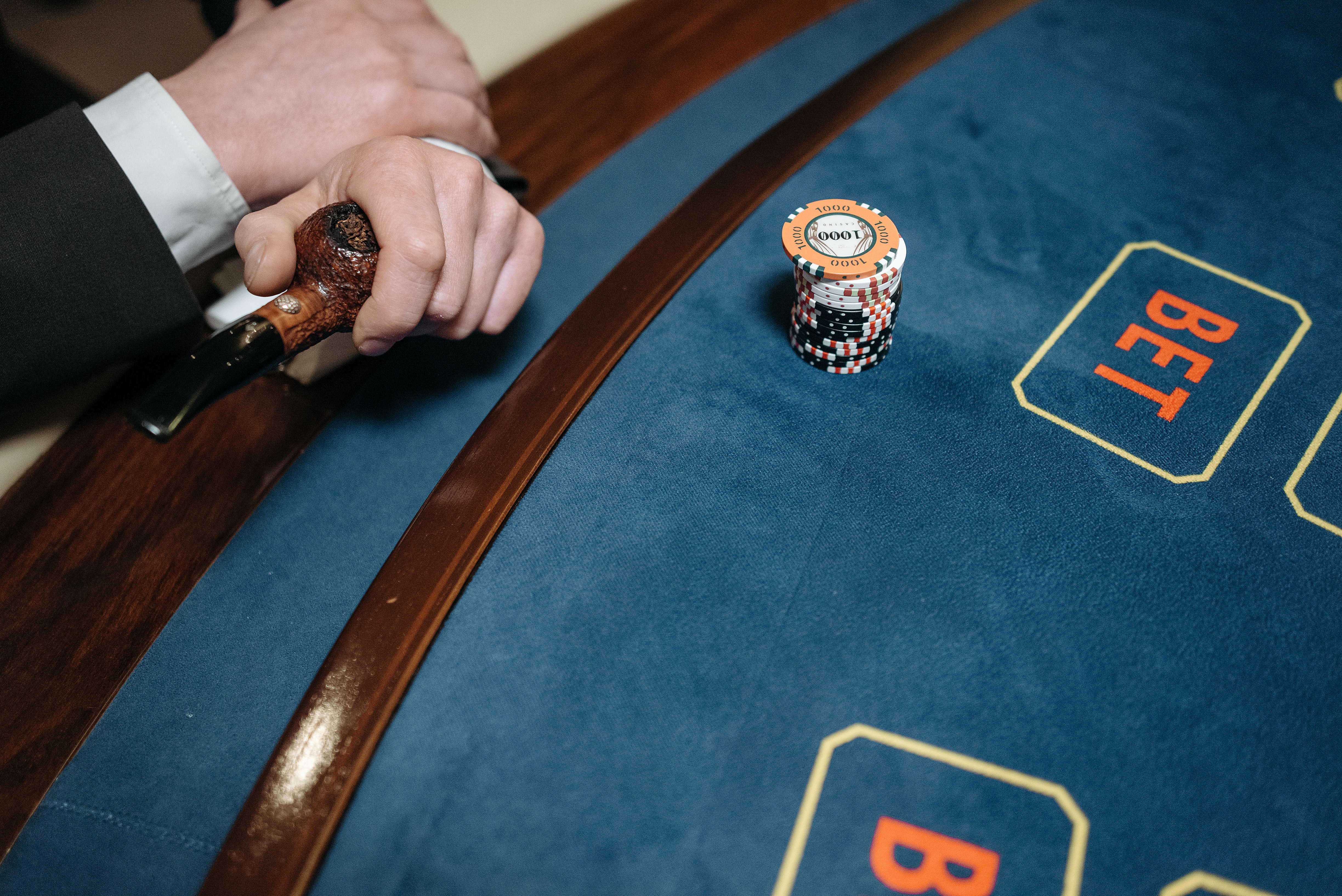The Martingale betting system for money management is among the most popular strategies for sports bettors. But does it actually work? The short answer is “No, definitely not.” Surprised? In this post, we will explain the theory behind the Martingale system, its history, how to use it, and exactly why you shouldn’t when sports betting or playing casino games.
What is the Martingale betting system?
The Martingale strategy is classified as a “progressive betting system.” That means that it is a system where you increase your stake with every bet based on previous outcomes.
In the case of the Martingale system, every time you lose a bet, you double your stake.
It sounds smart in theory. Every losing streak must theoretically be finite. When yours comes to an end, your winning bet will be so large that it eclipses all of your previous losses, putting you in the black. As you will discover, however, that is not how things play out in real life.
While the Martingale system works in theory, there are a few constraints placed by the reality of gambling at a sportsbook or casino that make it a losing strategy in the long run.
History of the Martingale betting strategy
Many people say that the Martingale system dates back to France, where it was invented in the 18th century. During that time, it was used in a simple betting game of heads-or-tails.
Some sources suggest that the system has been around even longer than that, however. The name “Martingale” may refer to the last name of “John Martindale,” who owned a casino. Martindale knew that using the Martingale strategy was a recipe for disaster for players. So, he made sure to nudge his players into using it. That meant that he would get more of their money.
Nowadays, the Martingale betting strategy is one of the most famous systems. It’s one that is often employed by non-gamblers or people new to betting. However, experienced bettors tend to stay far away from this sports betting strategy.
How to use the Martingale system when sports betting
Let’s go over a simple example of how you could apply the Martingale system when wagering on sports. Say your first bet is $10. You lose that wager, and 10 more directly afterward.
You double your stake size every time you lose. Here are the stakes for each of your bets:
- $10
- $20
- $40
- $80
- $160
- $320
- $640
- $1280
- $2560
- $5120
- $10,240
- … and so on
Remember, these are not just the stake sizes for your bets. These are your actual losses. The issue with this system should be clear just from this example. When you are doubling your risk with every wager, the amount you are losing with each bet quickly becomes exorbitant.
For the Martingale to work, you need to be earning a 1:1 return on your money. When sports betting, this means that you are betting on a selection with +100 odds in the American betting odds format.
11 losses in a row is a significant losing streak, but it is nowhere near outside the realm of possibility. Ask yourself: if you are risking $10 as your initial bet size, can you really afford to bet (and lose) $10,240 on your eleventh wager?
In fact, there is a good chance you would not even last that long. Let’s say your original bankroll was $200. In that case, five losses would wipe you out. And you would not even have enough left in your bankroll to make your fifth bet as large as Martingale demands.
Even if you do manage to end your streak with a win, your total profit once you subtract all of your losses will be relatively small.
Why the Martingale system does not work
We have already given one example of what makes the Martingale system profitable only for the bookies and the casino. You are risking a ton of money for relatively small wins. Most gamblers will burn through their entire bankroll quite rapidly this way. But there are other issues with Martingale as well:
- There is no logical reason to double your next bet because your previous bet lost. Believing your next bet is more likely to win because your previous bet lost is an example of the Gambler’s Fallacy.
- Sportsbooks and casinos tend to put a cap on how much you can bet—or on how much you can win. Even if you somehow manage to sustain your bankroll through the losing streak, by the time you win, you may have hit your betting site’s limit. As such, the amount you win may not even offset all of your prior losses.
According to what is known as the “optional stopping theorem,” Martingale is only profitable if the following conditions are met:
- You have an infinite bankroll
- There are no betting limits
- You can make as many bets as you want
Why do bettors keep using the Martingale strategy?
Far from being the best strategy, Martingale is one of the worst. So, why do so many bettors continue to double their stake sizes when losing bets?
In many cases, it may be because these bettors do not understand the Gambler’s Fallacy, or just have not done the math to figure out why Martingale is not a realistic approach. They just focus on the idea that they should eventually win.
Gamblers that use this strategy mistakenly believe that the consecutive wagers are connected in some way. For example, the odds that a flipped coin will land on heads seven times in a row is 1 in 128. However, when betting on sports or casino games, the probability of your wagers is not affected by your previous bet, and thus the odds of winning the bet remain the same each time, usually slightly less than 50% if betting on a selection with +100 American odds due to the house vigorish.
Advantages and Disadvantages of the Martingale Betting Strategy
Pros of Martingale:
- Martingale is extremely simple and easy to learn.
- The Martingale system works great if you want a solid lesson in what poor money management looks like.
Cons of Martingale:
- You literally need infinite resources and no restrictions to be profitable using the Martingale system.
- You will blow your bankroll extremely fast.
- Martingale is deceptive on an intuitive level. As easy as the system is to learn, many bettors struggle to understand why it does not work.
Is There a Smarter Way to Manage Your Money?
We suggest you stay away from Martingale and similar systems. Instead, a wiser approach is to simply bet a flat percentage of your bankroll on each of your wagers. Professionals keep their bet sizes very small, just 1-2% or so.
Some of the other most popular bankroll management strategies include the following.
- Kelly Criterion Model
- Fixed Unit System
- Percentage System
A system like this will allow you to sustain a much longer losing streak than Martingale ever would. Your profits will often be modest, but remember, that would be true with Martingale as well. And if you shop for competitive odds, you can get some nice payouts even with relatively small risks.
Martingale system for casino games
Sports betting is not the only arena where the Martingale betting strategy is popular. Many players at online casinos also use it when playing roulette or other games. But the Martingale system is no more profitable at the roulette tables than it is at the sportsbook.

Should you be using the Martingale system when sports betting?
The bottom line is no, you should not be using the Martingale system for sports betting, roulette, or any other form of gambling. While in theory, it sounds like a winning strategy for surviving your losing streaks, it is not.
When you practice the Martingale system, you will lose money rapidly, burning through your bankroll. You may get lucky and experience some short-term success but in the long run, you will lose all of your money. Even in situations where you do manage to survive the losing streak to win, you may only get a small profit.
Frequently asked questions about the Martingale betting system
You should have a pretty good idea now why Martingale is not a good system for money management for sports bettors. But let’s wrap up this post by answering a few frequently asked questions.
You might think Martingale is a way to recoup your earlier losses and come out ahead, but no, Martingale will not help you win at sports betting. It will simply annihilate your bankroll.
Yes, it is legal to use the Martingale system. It is, however, criminally destructive to your bankroll to do so. We strongly suggest that you avoid this strategy completely. Risking a flat percentage on each bet may sound boring, but it is much more likely to be profitable.
No, the Martingale strategy is not a good money management system for profitability. If you want a chance to build your bankroll, you need to keep your stake sizes small for your wagers during your losing streaks.
If you want to use the Martingale system profitably for sports betting, the only way to guarantee profitability over the long run is to have an infinite bankroll. In other words, you could be the richest person on the planet and still tank your account using Martingale. Whether you have $100 to bet with or $1,000,000,000, Martingale is not a profitable money management technique.

